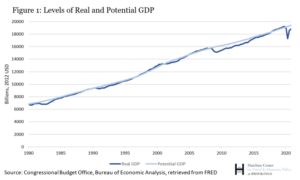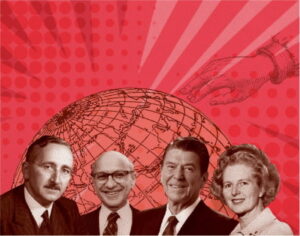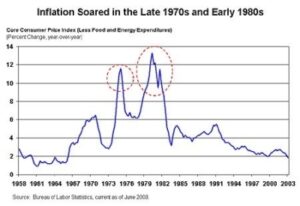Yet these economic ideas are still used as the basis for public policy.
This blog post identifies some and clarifies how we know they’re false.
This post is also part of a larger extended series of blog posts on banks and banking regulations, the lead post of which can be found via the link earlier in this sentence.
We know these economic ideas to be false, yet…
Money was invented by early societies because barter was inefficient
Adam Smith told us this. Chapter 4 of The Wealth of Nations tells this story. In his defence, if I lived in the mid 18th century and I was reverse engineering money and trying to figure out why it was invented, I might have come up with the same idea.
However, since then we’ve learned from anthropologists there is zero evidence this ever actually happened.
Primarily because these early barter societies did not exist.
In early bronze age pre-money societies, people within communities kept track of obligations to each other, without any need for money tokens. They just kept track of who owed what to whom, and this was the basis of commerce. Barter was not involved. There was no “double coincidence of wants” problem that had to be solved.
To learn why money was invented, read: The existence of money: It’s not due to barter being inefficient.
Competition is between individuals
The belief being challenged here is not that competition increases prosperity, but that competition is between individuals.
One of the foundational concepts of neoclassical economics is the idea that competition leads to an efficient allocation of resources within an economy. The Austrian school of economics takes this concept one step farther, with their emphasis on the individual.
A foundational proposition of Austrian economics is “only individuals choose”.
Man, with his purposes and plans, is the beginning of all economic analysis. Only individuals make choices; collective entities do not choose. The primary task of economic analysis is to make economic phenomena intelligible by basing it on individual purposes and plans; the secondary task of economic analysis is to trace out the unintended consequences of individual choices.
Boettke, P. (2020, July 10). Austrian School of Economics. Econlib. https://www.econlib.org/library/Enc/AustrianSchoolofEconomics.html
This foundational proposition ignores that not only do groups of people, in fact, make choices, but the history of human civilization is the history of groups of people cooperating in competition with other groups of people.
And this reality is starting to be recognized by financial institutions and financial journalists:
From the IMF: From Fragmentation to Cooperation: Boosting Competition and Shared Prosperity
From the Harvard Business Review: The Competitive Advantage of Nations
From Barrons: To Create Prosperity, Free Market Competition Isn’t Enough—You Need Collaboration Too
Modern economies have even created an environment where competition is no longer between “mere companies” but rather between supply chains, which include multiple companies. In other words, larger groups of people cooperating in competition with other larger groups of people.
Free markets are free of government intervention
This idea is a postulate of the neoclassical school of economic thought and is a pillar or core concept to adherents of the Austrian school.
But, markets that are free of government intervention have never actually been observed.
They’re like the lost city of Atlantis, unicorns, and that pot of gold at the end of the rainbow. We can describe them to each other, but we can’t show them to each other.
The Heritage Foundation ranks 178 nations on earth for their level of economic freedom. They rate the countries on a variety of criteria, resulting in a numeric score between 1 and 100. A nation is considered to be “free” when its score is 80 or above.
Per their rating, there are five free nations on earth: Singapore, New Zealand, Australia, Switzerland, and Ireland.
None of these economically free nations have markets that are free of government intervention. Literally zero of them.
All markets have rules, those rules are established through laws, and those laws are established through legislation.
In societies where the laws are very few, or where enforcement is ineffective (Somalia seems a good example), rules still exist, but they tend to be imposed by whichever warlord has the largest private army.
Markets free of government intervention simply do not exist. It seems what matters is what the rules of the economy are.
Yet this ideological rhetoric persists in implying that the existence of rules is the problem, rather than focusing on which rules help markets be more competitive and efficient, and which rules do the opposite.



